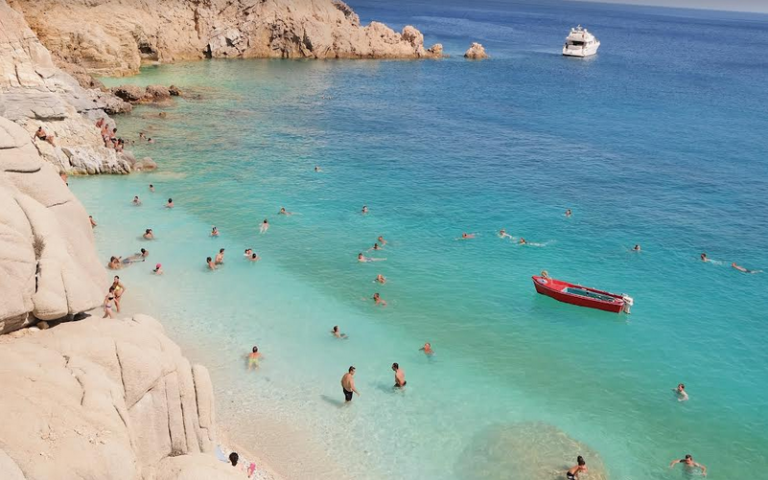Ikaria is a Greek island that seems to have been playfully crafted by the gods themselves. Nestled in the cerulean embrace of the Northern Aegean Sea, it possesses a certain ‘je ne sais quoi’ that entices wanderlust-filled souls in search of anarchic beauty, off-beat playfulness and forgotten tales. This enchanting isle is a notable “Blue Zone,” one of the four rare regions on Earth where residents frequently surpass a hundred years of age because of the way they continue to live and eat.
Ikaria’s people exist in harmony with nature, tending to their goats and grapevines as they have done for centuries. The island, named after Icarus, who in Greek mythology was said to fall to his death there from the sky when he flew too close to the sun, appears to hold the secret to a long and healthy life. Indeed even today, its residents frequently live long and fruitful lives, probably owing to a simple, stress-free lifestyle, vibrant community spirit, home-grown produce and the island’s abundance of medicinal herbs. The verdant hillsides, where wildflowers and olive groves flourish, seamlessly blend with azure shores that welcome the sun’s warm embrace.
From ancient ruins that whisper the island’s storied past to enchanting monuments like Panagia Theoskepasti, a Byzantine-era church nestled in a cave, Ikaria is a treasure trove of cultural and historical gems awaiting discovery. Moreover, the island, for a period in the post-WWII era known as the “island of exiles”, as a great number of communists and intellectuals were sent to live there during the Greek Civil War, boasts an array of breathtaking landscapes that lure visitors to explore serene beaches, rugged cliffs, and lush valleys adorned with vibrant flora and fauna.
Ask me anything
Explore related questions





